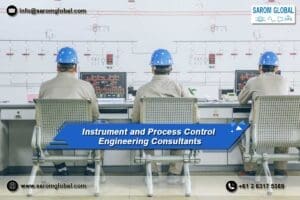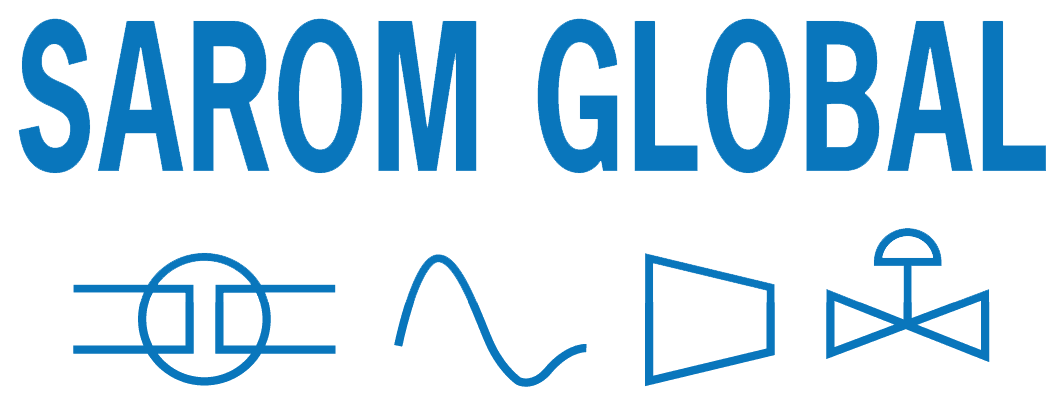 End users are driving plant performance to levels that would be impossible to achieve without current process control engineering technologies, procedures and Best-In-Class practices. Market demand by investors requires high performing process units capable of maximising unit production and decreasing energy and associated emissions. Knowing how to support and achieve Best-In-Class is a constant pursuit to stay ahead, i.e, ‘If we do not innovate, we stagnate’. Industry trend-getters and benchmarking seek the best-performing companies, but often miss what makes one plant perform better than another and often indicate relative differences without causal details.
End users are driving plant performance to levels that would be impossible to achieve without current process control engineering technologies, procedures and Best-In-Class practices. Market demand by investors requires high performing process units capable of maximising unit production and decreasing energy and associated emissions. Knowing how to support and achieve Best-In-Class is a constant pursuit to stay ahead, i.e, ‘If we do not innovate, we stagnate’. Industry trend-getters and benchmarking seek the best-performing companies, but often miss what makes one plant perform better than another and often indicate relative differences without causal details.
Our approach is the constant pursuit of optimal unit performance while recognising what worked yesteryear may not be Best-In-Class today. We start from a first-principles approach to both technology and plant unit & market economics. Then, we seek out opportunities to be prioritised with clients. We do so via our specialist consultants and practitioners, which are able to first ‘scout out’ then execute until a complete outcome is achieved operationally.
Specialist Process Control Engineering Consultants and Instrumentation engineering Consultants are in high demand in Australia and globally. Our Process Control Engineering Consultants and Instrumentation Engineering Consultants are versed globally in a broad range of multidisciplinary aspects of Industrial Engineering. In order to seek the optimal solutions, SAROM GLOBAL covers Process Engineering, Electrical Engineering, Mechanical Engineering. Too often are production problems or optimisation looked at from a single discipline approach. When investigated and studied multidisciplinary, both interim triage control and equipment improvements can be made to address priorities and also once time and funds are available & justified then medium to long term improvements can be executed.
There are mixed views, opinions on where the Process Control discipline stops. Often it is within the site or plants PLC (Programmable Logic Controllers), DCS (Distributed Control Systems) or APC (Advanced Process Control Systems or Model-Based Controllers. Our application of Process Control extends to all the thermal fluid, energy and economic functions concerning the business any associated businesses. e.g. a pipeline or shipping supply and demand scenario may benefit from Process Control improvements when managed holistically. This may require improvement to hardware or control algorithms, our job is to find out where to and how to address it.
Process control systems receive data from field equipment that measures physical characteristics such as level, temperature, pressure, flow, speed (RPM), product qualities and composition etc. The process control systems also output commands to regulate the processes required to be controlled, these can be analogue modulation (0 to 100%) or discrete signals (On / Off). Process control and automation rely heavily on field instruments, analysers and the performance of the output commanding elements or final elements. Often the fidelity and response of the final elements be it valves or turbines etc, may be limited by their sub-control systems e.g. valve positioning and control or speed governours respectively. SAROM GLOBAL is able to identify if there are innate Vs superimposed final element behaviour limiting Process Control and are able to work through the multidisciplinary issues with OEM’s and clients to improve or remediate.
Applications of Process Control and Instrument Engineering Include:
Monitoring and protection of important infrastructure via plant Central Control Rooms (CCRs) or remotely
Field sensor data are inputs to PLC/ SCADA/ DCS & associated Process and Event Historial (trending) systems in oil and gas facilities, mineral processing, chemical processing industries. Real-time and historical process data analysis requires specialist knowledge to interpret data or to develop monitoring algorithms in order to ‘decipher’ process data that may only be effectively be analysed via multivariable analysis. Similarly, the analysis of final element behaviours is equally important as the final elements control the plant. We can help with:
- Process Historian System (trending systems) and Sequence of Events (SOE) Functional Requirements.
- Incorrect specification of Historians and SOE systems is a common problem and leads to poor data quality that can result in the inability to accurately assess the plant and past scenarios.
- Supervising, the Surveillance and manual graphical interpretation of the process and equipment conditions.
- Optimisation of processes based on past patterns in process and equipment performance.
- Recording of the process deviance from expected process conditions and providing guidance on how to manage.
- Diagnosing the health of equipment and processes, as well as planning their overhaul/repair and preventing any breakdowns.
- Triggering of process alarms and shutdowns for safely operating the facility.
Power Plant & Grid Stability Due to Renewables on the increase.
The energy grid’s stability is progressively being impacted by the increasing effects of Renewables as their connected capacity increases. The instability is a result of decentralised large scale generator supply being paralleled with Renewable sources with their outputs not being coordinated with traditional generators. There is practically no synergy to coordinate as there is a conflict in the business objectives, ie. the Renewables need to transfer their energy when nature provides and the traditional power plants would like to run at maximum constant load 24/7.
Some consequences are;
- Market supply and demand rapid cost variations, where in Australia spot market prices can exceed $5,000MWh and then swing negative $MWh. This variation has massive market effects on end-users, generators, traders and business investment decisions for new power plants and upgrades.
- Power grid voltage, frequency and current disturbances, resulting in partial/complete grid tripping.
- Dynamic response of traditional power plants as Renewables output swings.
This is a multivariable process control problem. The major challenge is how to coordinate conflicting business entities. Some dampening can be attained by storage technology be it batteries, hydroelectric & associated pumping, flywheels etc. However, any time another storage technology is applied, this results in losses and requires capital investment. This does not mean storage does not have a place, rather the question should be asked, what else can be done with the current hardware. This is the role of a Process Control Engineering Consultant and Practitioner.
Control opportunities exist, where hardware and control improvement can be made within a plant to improve the dynamic response and range. Additionally, major consumers can be Control Coordinated with Generators synergetically improve overall grid stability. Doing so is a complex control, hardware and economics problem where SAROM GLOBAL can assist.
Supervisory Control and Data Acquisition (SCADA) and Human Machine Interference (HMI)
CCR / Panel Operators and Engineers all look at real-time and historical data which can be from a SCADA, DCS, HMI or other similar systems. The usability of graphical HMI (interfaces) is cardinal as this affects the real-time interpretation of the plant’s state and any possible imminent actions required. During adverse events, HMI and data quality is important in order to rapidly comprehend what to do next. There have been major incidents in an industry where operators have been overloaded by poorly defined process alarms or alarms where the quality was poor and difficult or impossible to interpret.
Process Control is more than tuning a PID control loop, it requires a thorough process unit knowledge along with how to manage the respective equipment technologies. Should you require additional help with your project or existing asset, we recommend contacting us.
Contact us
SAROM GLOBAL
info@saromglobal.com
